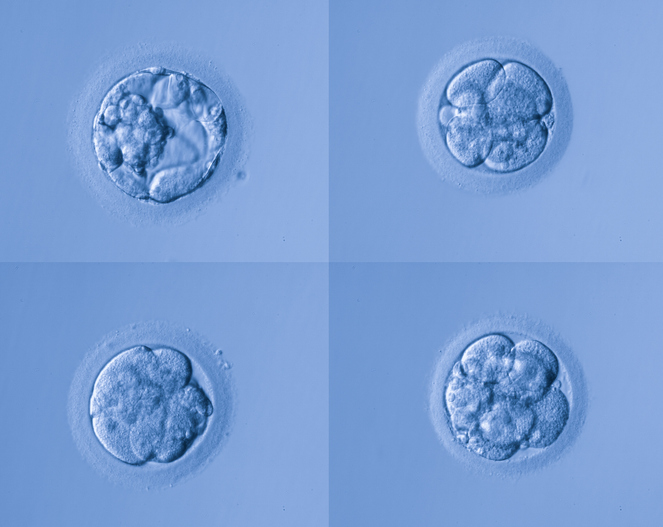.png)
.png)
Have you ever considered donating your eggs? It's a decision that can profoundly impact not only your life but also the lives of another family that could not otherwise conceive. However, it's not a choice to be made lightly. As you consider this possibility, you may find yourself grappling with myriad questions and emotions. Is egg donation right for you? How will it affect your life, both now and in the future? What are the physical and emotional implications?
In this article, we'll explore the key factors to consider when deciding if egg donation is the right choice for you. From understanding the medical process to examining your motivations and considering the long-term impacts, we'll provide you with a comprehensive guide to help you navigate this complex decision. Whether you're seriously considering donation or just starting to explore the idea, this information will help you make an informed choice that aligns with your values and life goals. Let's dive in and discover if egg donation might be your path to making a difference in someone else's life.
Understanding the egg donation process
To decide if egg donation is right for you, you should first understand what it entails. Egg donation is a process in which a woman donates her eggs to another person or couple (known as the recipients, or intended parents) with the aim of helping them conceive a child. During the initial egg donor process, the potential donor undergoes rigorous medical, psychological, and genetic screening to ensure they qualify according to industry guidelines.
Once deemed fit, the egg donor is matched with intended parents. After legal documents are completed, they begin the egg retrieval process, which includes hormonal treatments to stimulate your ovaries to produce multiple eggs in one cycle. Typically, after about a week of hormone treatments, the eggs are retrieved through a 30-minute outpatient surgery.
The retrieved eggs are fertilized with sperm (either from the intended father or sperm donor) to create embryos. The resulting embryos are then transferred to the recipient’s uterus (intended mother or gestational carrier), or they may be frozen for future use.
The growing acceptance of egg donation
Data from fertility clinics and SART registries indicate a steady increase in the number of egg donation cycles performed over the last decade. As women are becoming more educated about their biology paired with growing support for diverse families, and advances in technology, egg donation is gaining greater acceptance as a viable option to have a child. Changes in legal and ethical guidelines have also helped regulate egg donation, making it safer and more transparent for all parties involved.
Even though the need for egg donation is increasing and social and regulatory factors are changing the landscape, potential donors need to be fully educated about the medical procedures and potential side effects including psychological implications. Donating eggs can have emotional consequences, such as feelings of attachment or concerns about the future children born from the donation. Access to psychological counseling can help donors process their emotions and make informed choices. Informed decision-making empowers potential egg donors to make choices that are right for them, ensuring they are fully aware of and comfortable with the implications of their decision.
Making an informed choice
A fertility psychologist can play a crucial role in helping the donor with the decision-making process by helping ensure that potential donor makes well-informed, emotionally sound decisions.
The psychological evaluation is the first step in ensuring that the egg donor is psychologically stable and capable of handling the emotional aspects of egg donation. At the same time, the evaluation can help identify any pre-existing mental health conditions that could be exacerbated by the donation process. The psychologist can also provide follow-up counseling to help the donor process their experience and any feelings that may surface afterward.
Considering your motivations
Women consider egg donation for various reasons. You may be influenced by altruistic motives, such as wanting to help someone struggling with infertility. The compensation – either financial or the opportunity to freeze your eggs for free - might be appealing. For some, the personal fulfillment of knowing they've made a meaningful contribution to someone else's life offers a sense of purpose.
Also, certain personality traits may play a role in donating. One study found agreeable, extraverted, and open/intellectual participants reported more civic engagement, especially volunteerism and charitable giving.
Reflecting on your motivations is essential to ensure you're making a well-informed, emotionally sound decision that aligns with your personal values and beliefs. This reflection can help you set realistic expectations about the outcomes and the process, reducing the risk of disappointment.
Evaluating emotional readiness
It's normal to have mixed feelings about egg donation. Some women are certain from the outset that they want to donate, while others may be intrigued by the idea but have concerns. If you're on the fence, it's important to spend time researching and gathering information to understand how donation could impact your life.
It’s important to recognize that having mixed feelings or being uncertain about egg donation is a common experience. Many women go through a period of contemplation before making their final decision. There is no right or wrong way to feel - each woman’s journey is unique, and it is okay to take the time needed to make an informed decision. And that is the key… ensuring informed decision making.
Consider the potential for feelings of grief, loss, or attachment to offspring, even if you intellectually understand your role as a donor, not a parent. Remember, there's a significant difference between being a donor and being a parent. As a donor, you provide genetic material but don't play a role in the child's upbringing.
How will I feel after donating my eggs?
There is always the potential for feelings of grief, loss, or regret after donating one’s eggs. Some egg donors have concerns about the genetic connection to offspring and worry about developing emotional attachments to the children born, even if they are not involved in their upbringing. Some have concerns about whether the offspring might seek them out – especially if they aim to be anonymous. There can be grief for the loss of relationship with the child conceived from their eggs, even if the donor intellectually understands the nature of the donation. Donors might regret their decision if they feel they were not fully informed about the process or its implications, or if they felt pressured into donating.
However, research shows that egg donors are generally happy with their decision and usually do not regret it – especially if they have had comprehensive counseling, informed decision-making, and strong support systems in place.
A very important point to remember is that there is a big difference between being a donor and being a parent. As a donor, a woman provides the genetic material (egg) that contributes to the creation of a child. However, she does not play a role in the child's upbringing. Parents are the ones who are responsible for the social, emotional, and physical upbringing of the child. This includes providing care, nurturing, education, and support throughout the child's life.
Assessing the impact on future relationships
Egg donation can have a significant impact on future relationships and family dynamics. Understanding and addressing these potential impacts is crucial. It’s important to discuss egg donation with future partners, as it’s a significant part of one’s personal history and can impact the relationship. Partners may have varying reactions, from supportive to concerned. Discussing potential implications and addressing any worries can help manage these reactions.
Seeking professional guidance
Speaking with a fertility psychologist can be extremely beneficial. They can help you:
- Process your emotions and expectations regarding the donation process
- Practice conversations with family members
- Address potential questions and reactions
- Teach communication techniques to ensure discussions are clear yet sensitive to family dynamics
Counseling offers a safe environment and allows donors to express their fears, anxieties, and expectations regarding the donation process. A psychologist can also help donors feel confident and clear about the decision.
If you work with Cofertility, we cover the cost of speaking with a fertility psychologist, like myself.
Egg sharing
For many women considering egg donation, egg sharing programs like the one offered by Cofertility present an attractive alternative to traditional donation. In this model, you freeze half of your retrieved eggs for your own future use while donating the other half to intended parents.
This approach can feel like a win-win situation for many potential donors. It allows you to contribute to someone else's family-building journey while also preserving your own fertility options. Many women find this option aligns better with their personal goals and values, as it combines altruism with potential personal benefit. If you're unsure about traditional egg donation, exploring an egg sharing program might help you find a path that feels right for you.
Making an informed decision
Deciding to donate your eggs is a complex decision that requires careful consideration of personal motivations, medical and psychological impacts, and potential effects on future relationships. Thoroughly researching and reflecting on these key points, along with seeking support and counseling, can help ensure that your decision is well-informed and aligns with your values and long-term well-being.
Remember, there's no right or wrong way to feel about egg donation. Each woman's journey is unique, and it's okay to take the time you need to make an informed decision. By carefully considering these factors, you'll be better equipped to determine if egg donation is right for you.





.png)




